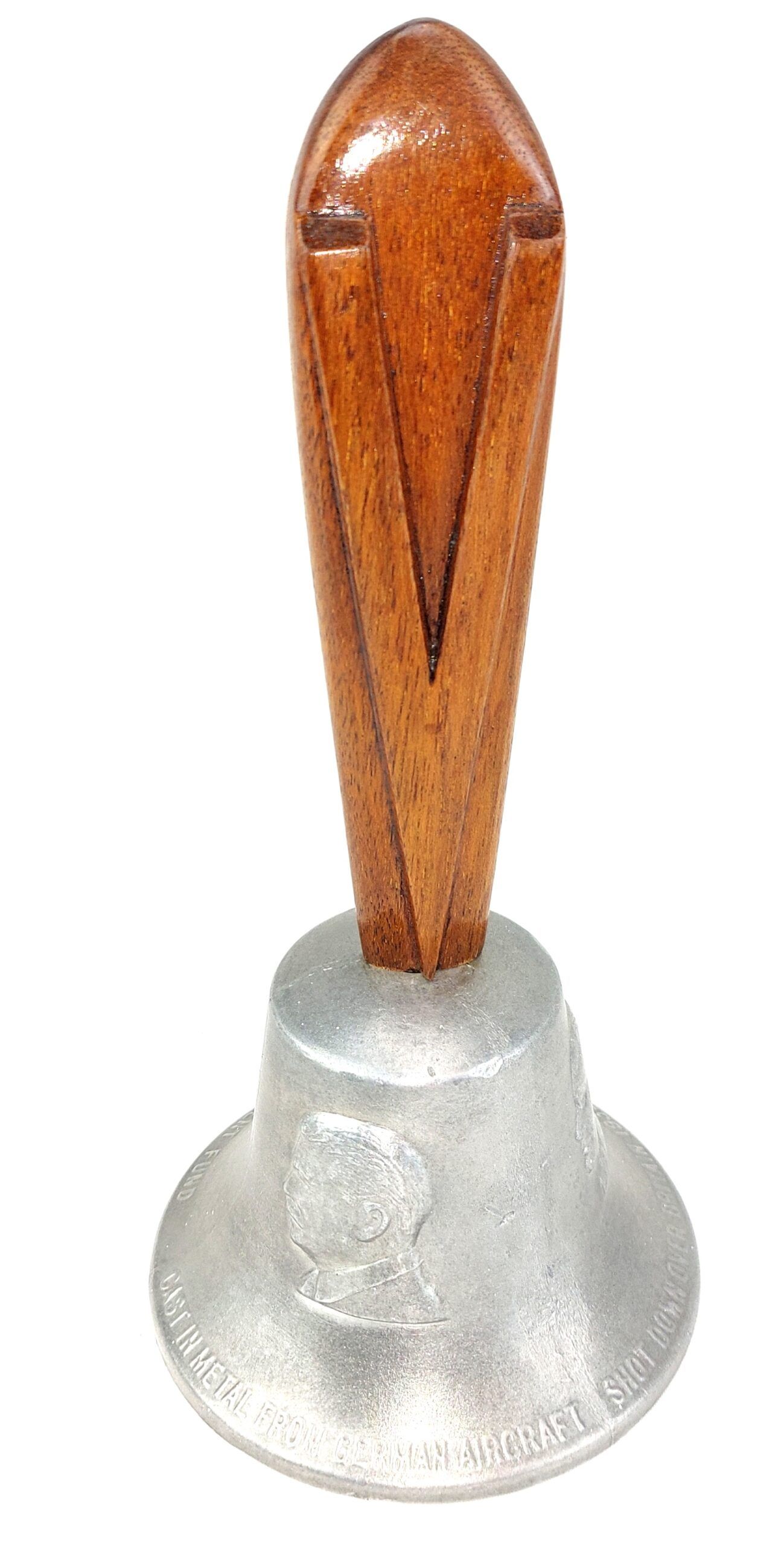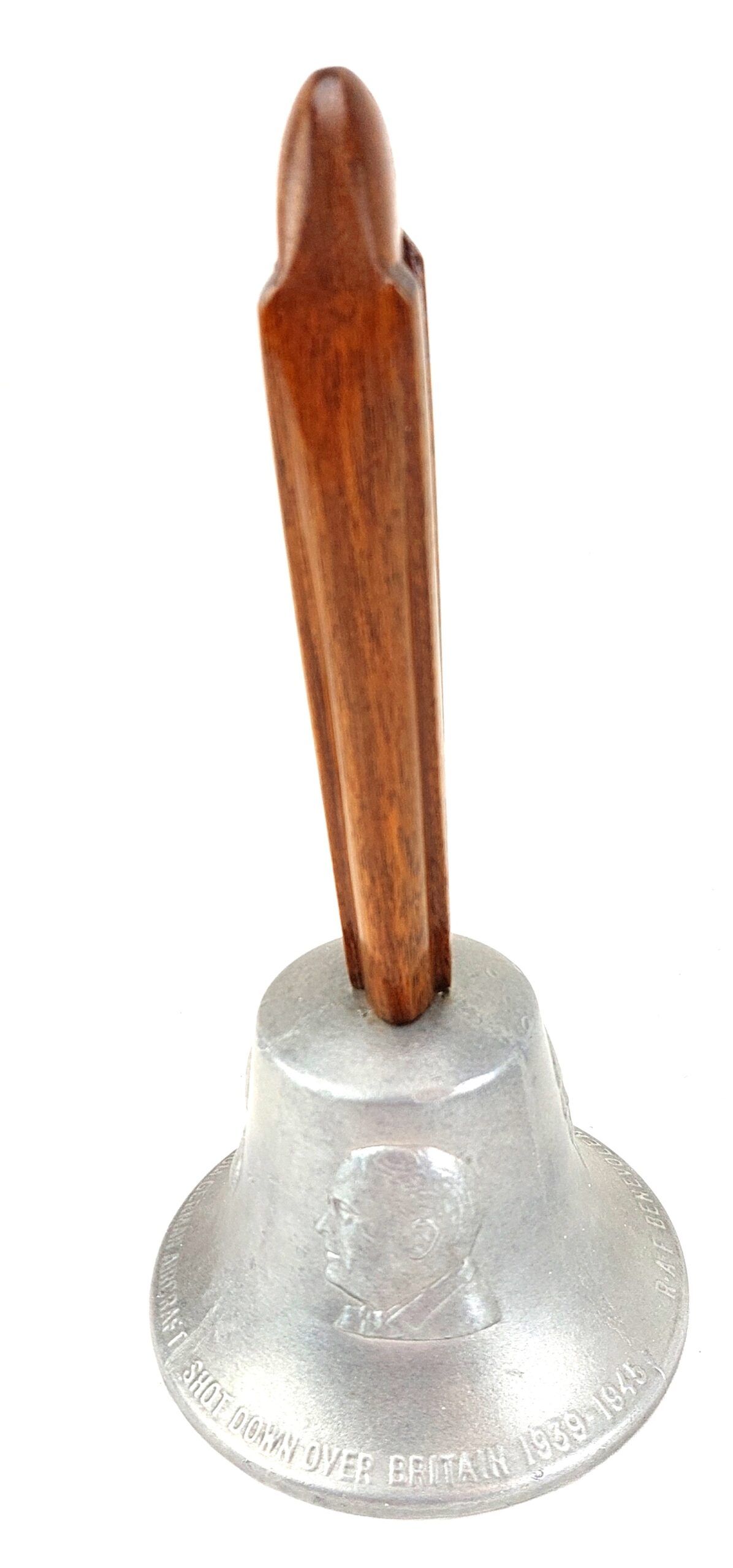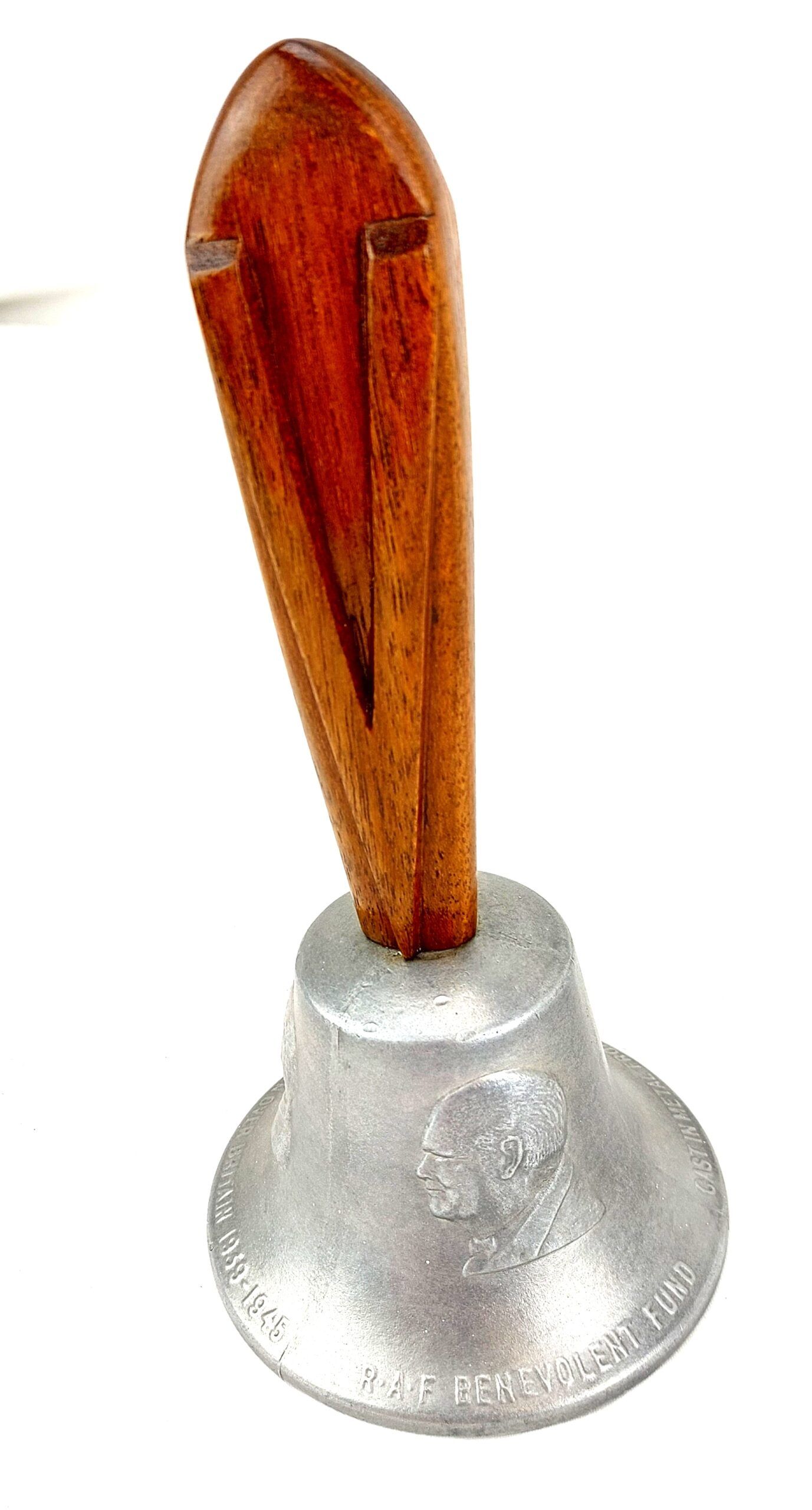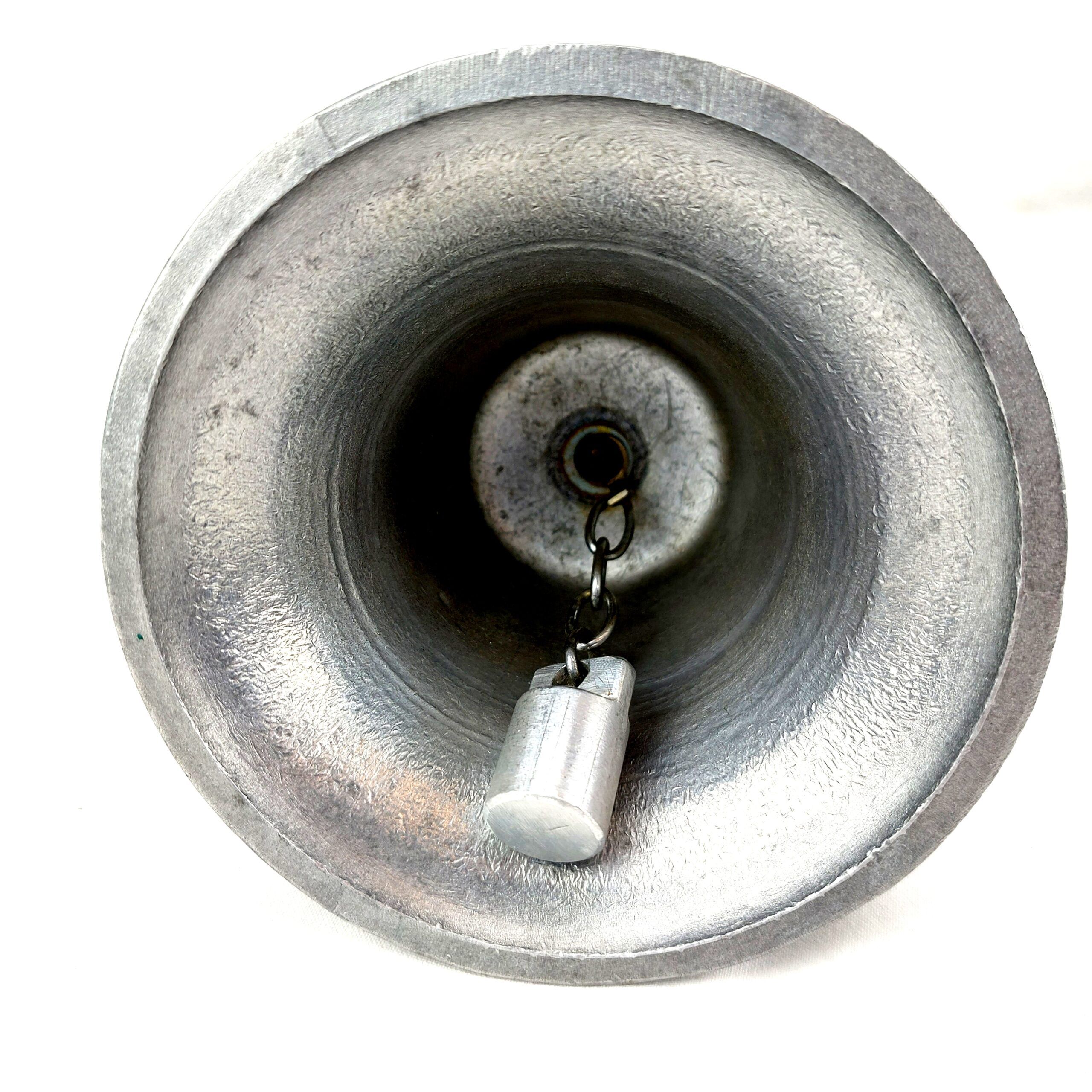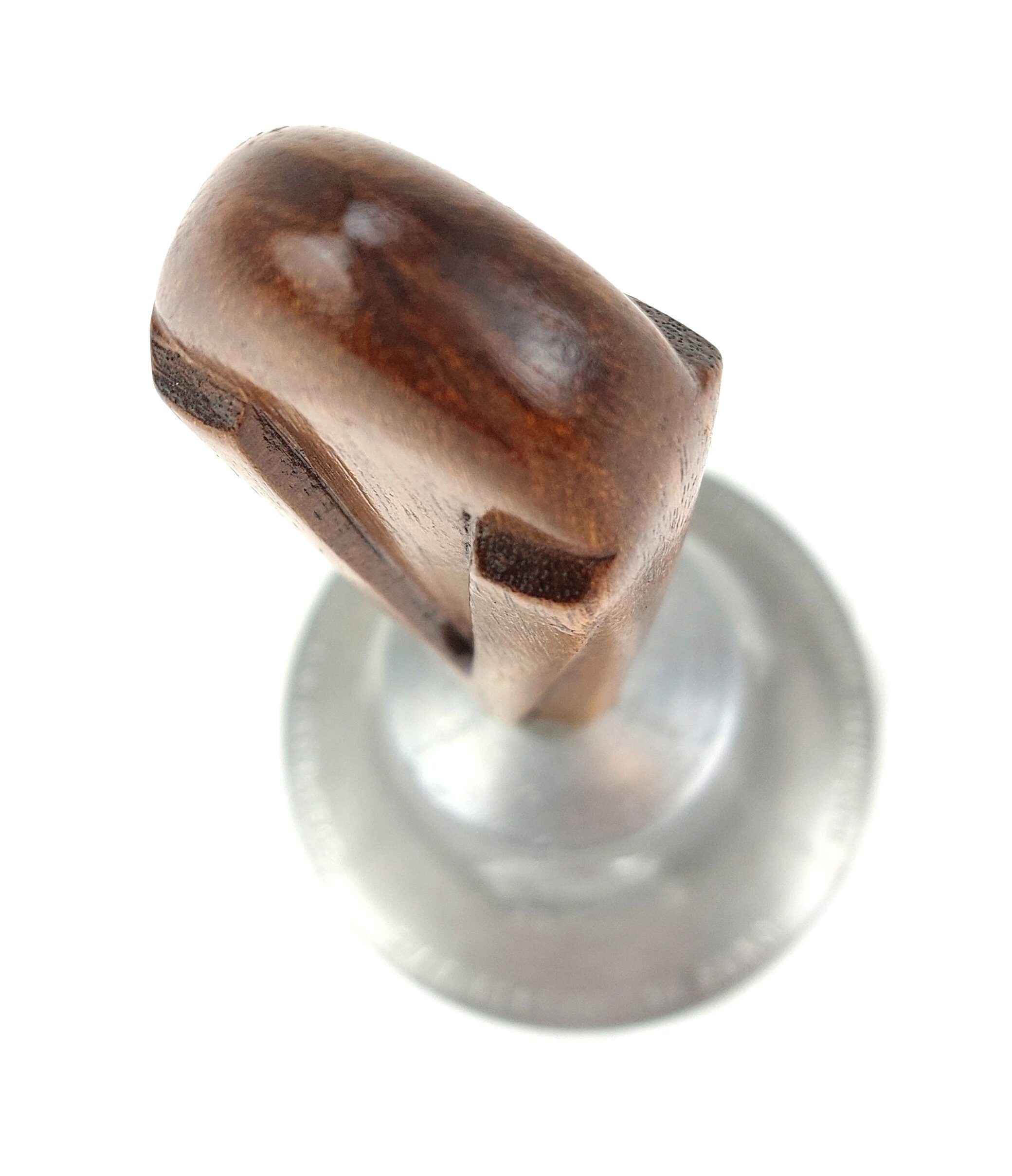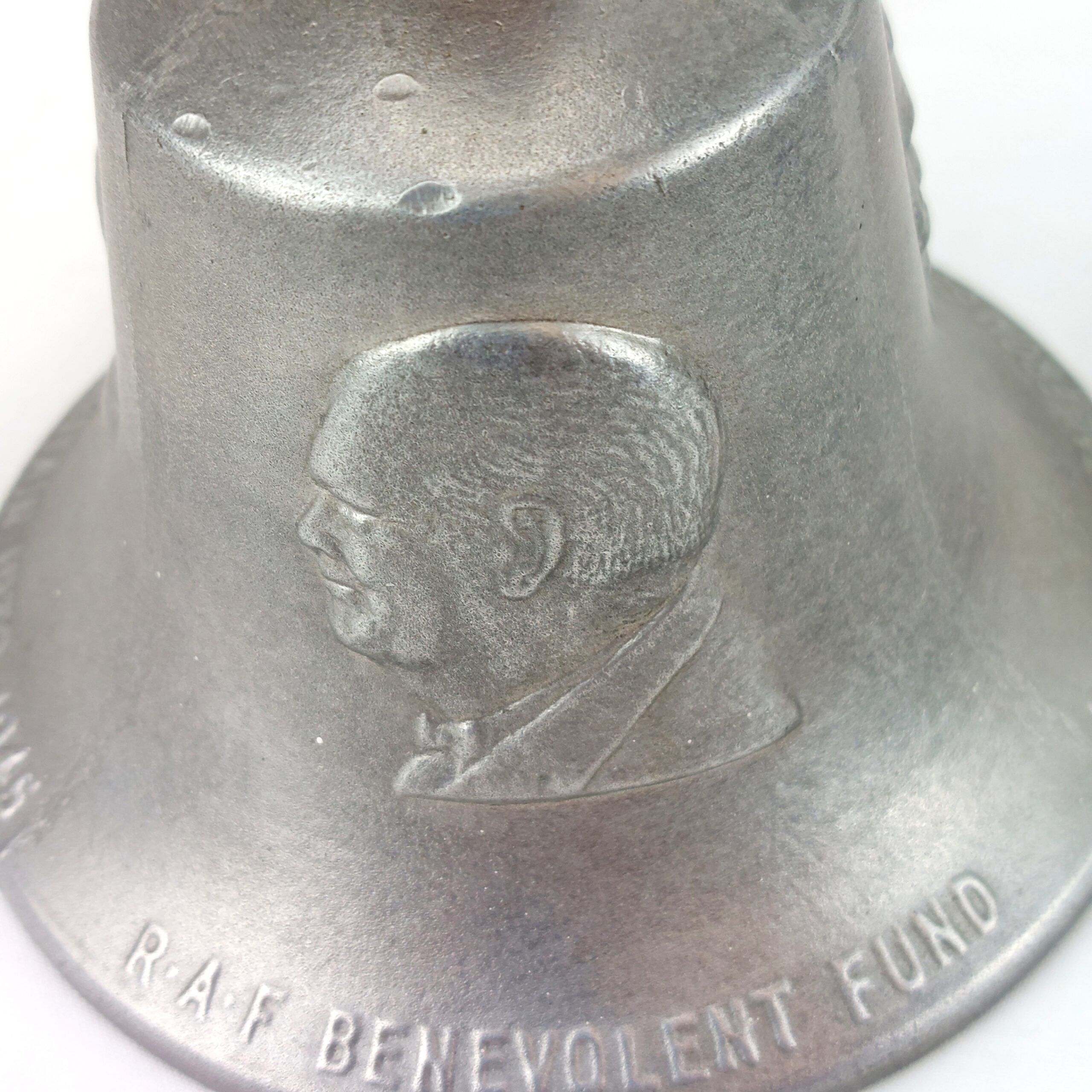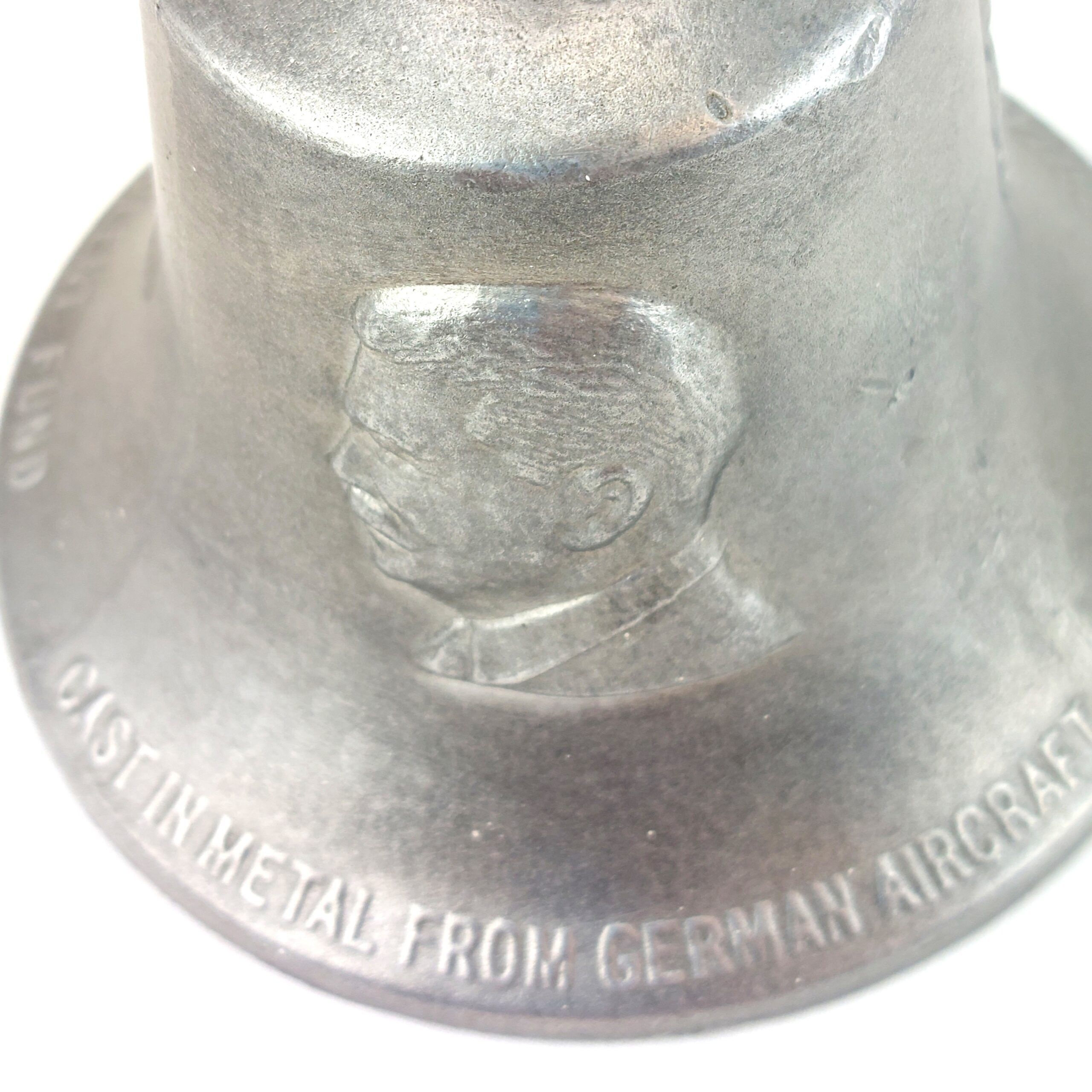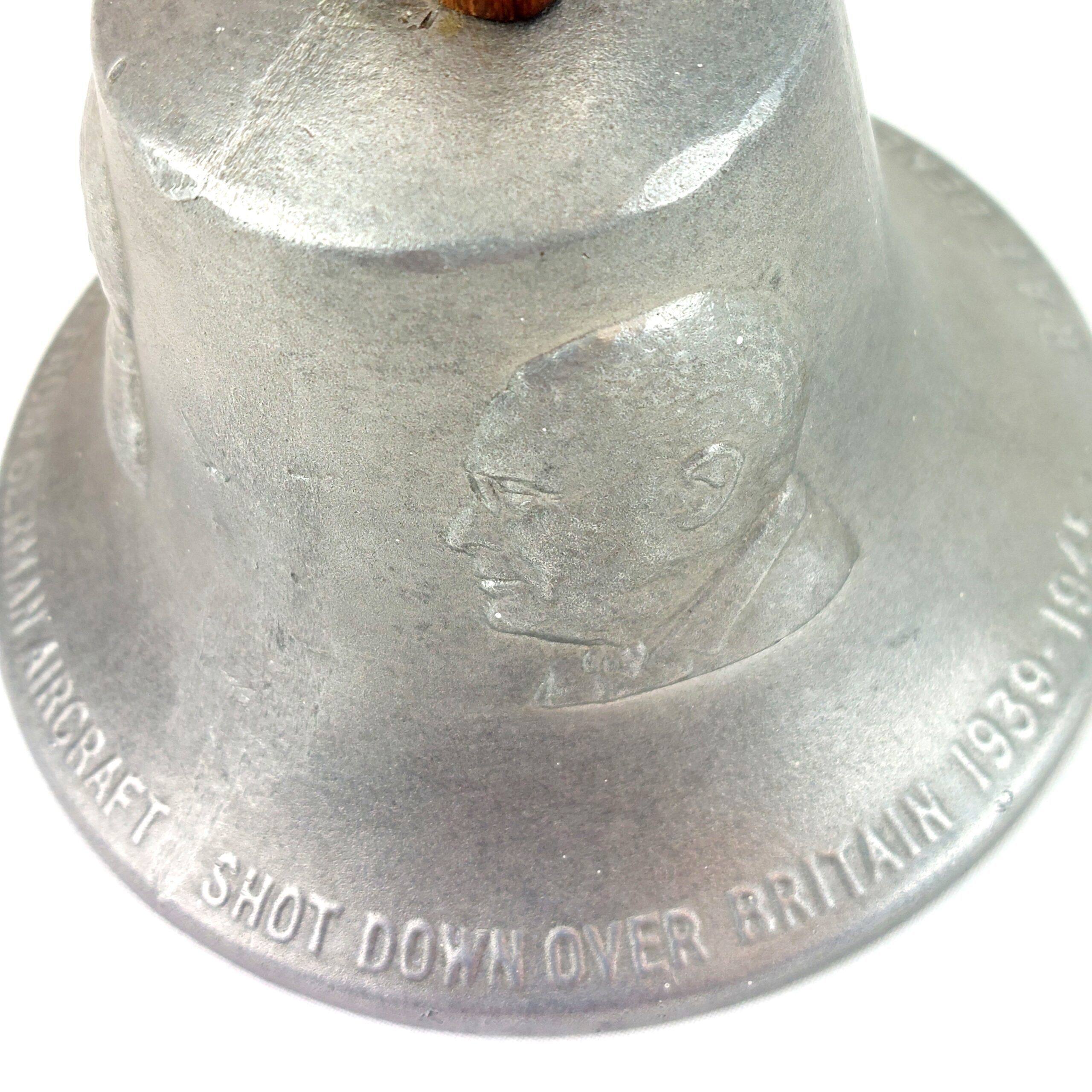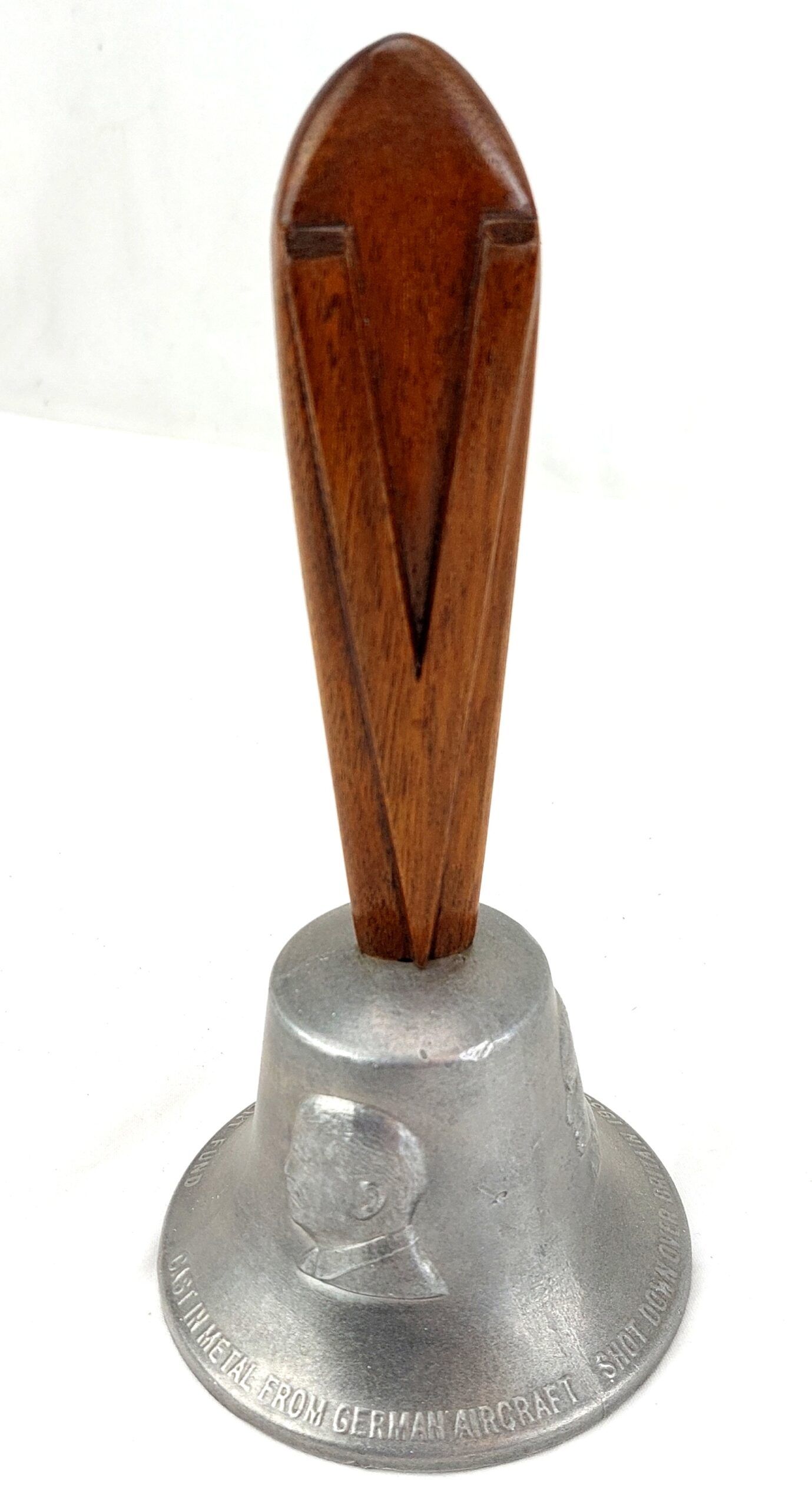*British, WW2, Battle of Britain “Victory Bell” – Royal Air Force (RAF) Benovolent Fund Cast in Metal From German Aircraft Shot Down Over Britian 1939-1945, with Wooden Victory Handle, by Conrad Parlanti*
24.5cm tall, 11.3cm base diameter.
This remarkable World War II “Victory Bell” from the Battle of Britain was created by British caster Conrad Parlanti. Born in 1903, Parlanti began working in his father Ercole Parlanti’s foundry. Cast from the metal of a German aircraft shot down over Britain, Parlanti made these bells to support WWII British pilots and their families through the Royal Air Force Benevolent Fund. The bell features the heads of Churchill, Stalin, and Roosevelt on its sides, with an inscription around the edge: “RAF BENEVOLENT FUND, CAST IN METAL FROM GERMAN AIRCRAFT SHOT DOWN OVER BRITAIN 1939-1945.” The wooden handle has a raised ‘V for Victory’ on each side, and the clapper is attached to a chain inside.
Near the end of the war, Parlanti noticed a stack of aluminum ingots from German aircraft and conceived the idea to celebrate the RAF’s victory, support the RAF Benevolent Fund, and create a symbolic souvenir marking the transition from war to peace. Only a few of these bells were made, and even fewer exist today. While the specific German aircraft used for the bell is unknown, notable planes from the Battle of Britain include the Messerschmitt Bf 109, Heinkel He 111, and Junkers Ju 87. Parlanti’s bell design varies mainly in the handle’s shape and the inscription, but all versions include portraits of Churchill, Roosevelt, and Stalin, as well as the ‘V for Victory’ symbol associated with Churchill and resistance in Occupied Europe. This campaign was so influential that the Germans adapted it in a counter-campaign in several occupied countries.
The bells sold for one pound each, with all proceeds going to the RAF Benevolent Fund. Parlanti later made a mold for larger bells of the same design and invited as many Battle of Britain pilots as possible to cast a bell. These larger bells were auctioned off at the Hungaria restaurant in London by Flanagan and Allen to famous attendees of a gala, with one bell selling for £1,200. Conrad emigrated to the USA in 1955.
*Condition*
Good used condition – a few minor chips commensurate with age. Please see photographs as part of the condition report.


